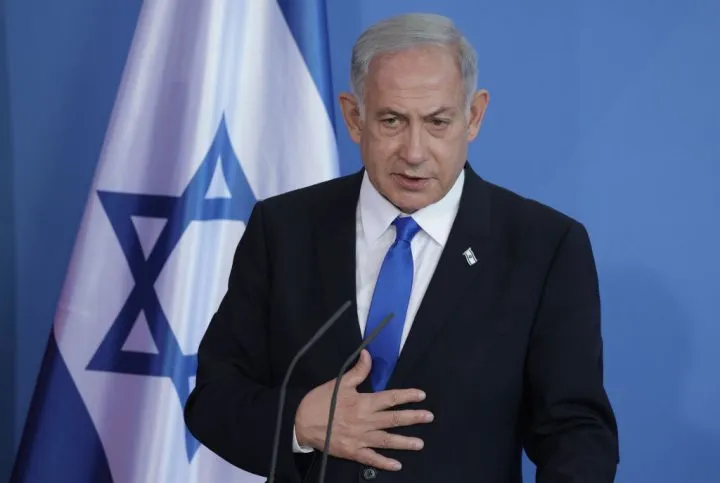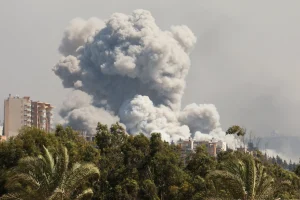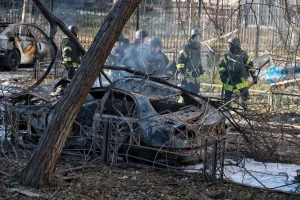Israel is weighing possible responses to Iran’s attack with hundreds of drones and missiles, amid growing calls for restraint to avert a wider war.
Israel and its allies shot down nearly all projectiles fired in the first ever direct Iranian attack on Israel.
The US has said it will not take part in any Israeli response, to avoid an escalation in regional hostilities.
Centrist Israeli minister Benny Gantz said the country would “exact the price” from Iran when timing is right.
For almost two weeks Iran had telegraphed its plans to respond to the 1 April air strike on its diplomatic compound in the Syrian capital, Damascus, that killed several military advisors, including two top generals. Iran blamed Israel for the attack, saying it was equivalent to a strike on its own soil.
Rear Admiral Daniel Hagari, a spokesman for the Israeli military, said Iran fired around 300 explosive drones, cruise and ballistic missiles, but that 99% of them were intercepted by Israel, supported by US, British, Jordanian and other allied forces.
In Jerusalem, the air raid sirens went off at around 01:45, followed by loud blasts after the air defence intercepted projectiles over the city. A map published by the Israeli military showed the entire country covered with red dots, symbolising areas at risk of being hit and where residents were urged to seek shelter.
The attack, in the end, had limited impact. A military base in the south sustained minor damage, the Israeli military said, and a seven-year-old Israeli girl was critically wounded by a missile that got through the defences.
In a phone call overnight, US President Joe Biden reaffirmed to Israeli Prime Minister Benjamin Netanyahu America’s “ironclad commitment” to the security of Israel, but said the US would not support an Israeli retaliation.
Later, a senior administration official said Israel’s successful defence was already a victory over Iran, and that the country should “think carefully” about what it does next.
“Big question is not only whether, but what the Israelis might choose to do, so this is a decision for them,” the official said.
Tensions between Israel and Iran have been high for decades and, since the start of the Gaza war, Iran’s proxies in the region – such as Hezbollah in Lebanon and the Houthis in Yemen – have carried out attacks on Israel and on targets linked to Israel or its allies.
The overnight attack, and the possibility of an Israeli response, risked putting the two old enemies in open confrontation, and sparked a flurry of international diplomatic activity aimed at reducing tensions.
Israel’s five-member war cabinet – which includes Mr Gantz – met on Sunday to discuss a possible reaction, but no decision was made amid a division over the timing and scale of any such response, according to the Reuters news agency.
The Iranian army chief of staff Maj Gen Mohammad Bagheri warned Israel against retaliation, saying an Iranian response would be “much larger than [Sunday’s] military action”. Despite the rhetoric, Iranian officials have indicated not being interested in an escalation of hostilities.
In Israel, the country seemed to be returning to normal on Sunday. The airspace was reopened and the airport was again operational. “The power of Israel is that we have a shield, a defence from these threats,” 54-year-old Ariel said, in Jerusalem. “[The attack] was expected. I hope there won’t be a war.”
Source:bbc.com













